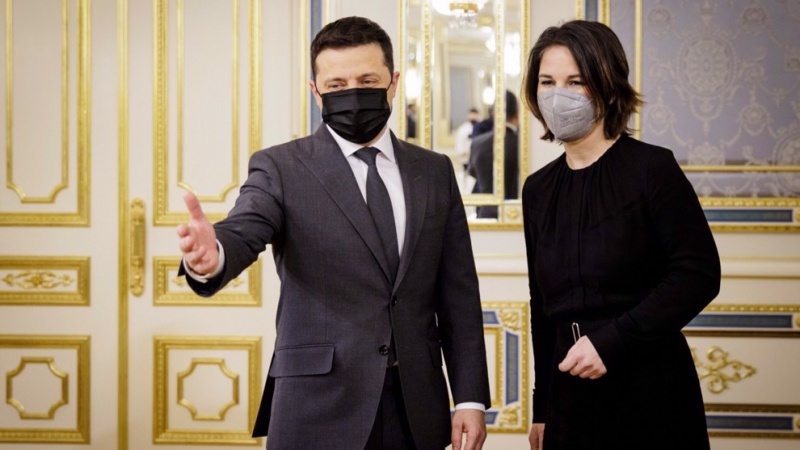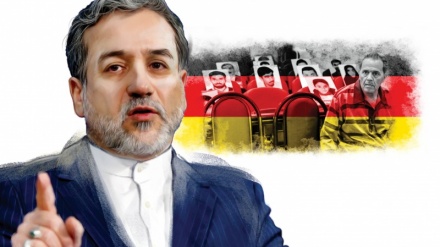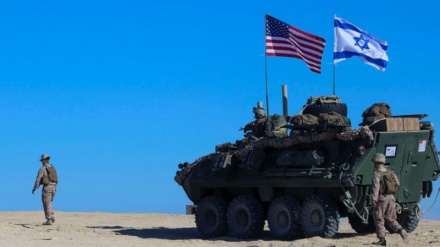Ukraine, Germany push back against US claims of imminent Russian invasion
Ukraine and Germany have pushed back against assumptions by Washington about Russian intentions to invade the former Soviet state as tensions further escalated after US President Joe Biden warned that Russia could launch an attack “within days.”
According to reports, in an address to the Munich Security Conference on Saturday, Ukrainian President Volodymyr Zelensky once again censured the Biden administration for creating "panic" with regard to the Russian troop buildup on the country's border and its dire predictions that an alleged Russian invasion could be imminent.
"We do not think that we need to panic," Zelensky told the annual conference attended by top-level officials and the world's security experts in the German city.
Germany's foreign minister also appeared to tone down the rhetoric by warning against attempts to guess or assume Russia's decisions on Ukraine. "We do not know yet if an attack has been decided on," Annalena Baerbock said on the sidelines of the conference.
Western countries have in recent weeks accused Russia of preparing for an invasion of Ukraine by massing 150,000 troops and armaments near the border with that country. Russia has rejected the claim, saying the military build-up is defensive in nature.
In a major step to de-escalate, Moscow announced last week that some of the troops deployed in areas bordering Ukraine would return to their bases. It also released footage showing tanks and armored vehicles being loaded onto railway flatcars. The US and its NATO allies, however, have played down the move.
Putin has warned that the US is deliberately designing a scenario to lure Russia into a war over Ukraine. The Kremlin has repeatedly said that the expansion of the NATO military infrastructure in Ukraine constitutes a red line for Moscow and that any future expansion must exclude Ukraine and other former Soviet countries.
Ukraine's government troops and pro-Russia forces have over the past days accused each other of launching a huge new wave of attacks and repeated ceasefire violations in the eastern regions of Lugansk and Donetsk, collectively known as Donbas.
Russia has already voiced concern about the circumstances in eastern Ukraine, saying the situation looks potentially "very dangerous".
Donetsk and Luhansk were turned into self-proclaimed republics by ethnic Russians in 2014. That led to a bloody conflict between the government forces and armed separatists.
China: Russia's concerns 'should also be respected'
In a related development on Saturday, China's foreign minister called on the West to respect Russia's concerns over Ukraine and questioned if an eastward NATO expansion would guarantee peace.
"Ukraine should be a bridge linking East and West, not a front line," Wang Yi told the Munich Security Conference on video-link. "All parties have the right to raise their concerns, while the reasonable concerns of Russia should also be respected and heeded."
Russia has demanded legally binding guarantees from NATO that it will halt its eastward expansion and return to its 1997 borders. It also demanded that the military alliance never admit Ukraine as a member. However, the Kremlin says Russia's main security demands have not been taken into account by the US after Washington delivered written replies to Moscow.
Cuba: US unleashed propaganda hysteria around Russia
Also on Saturday, Cuban Foreign Minister Bruno Rodriguez Parrilla said Havana views Washington’s accusations against Russia on an alleged invasion of Ukraine as "propaganda hysteria," and opposes the eastward expansion of NATO.
"We strongly reject the media and propaganda hysteria triggered by the US government against Russia, and we firmly oppose NATO's expansion towards the borders of that sister nation," he said in a Twitter post.
The Kremlin has already rejected the US claims of a Russian invasion as "empty and unfounded" and said they serve as a ploy to escalate tensions, stressing that Russia did not pose any threat whatsoever to anyone.
SS



